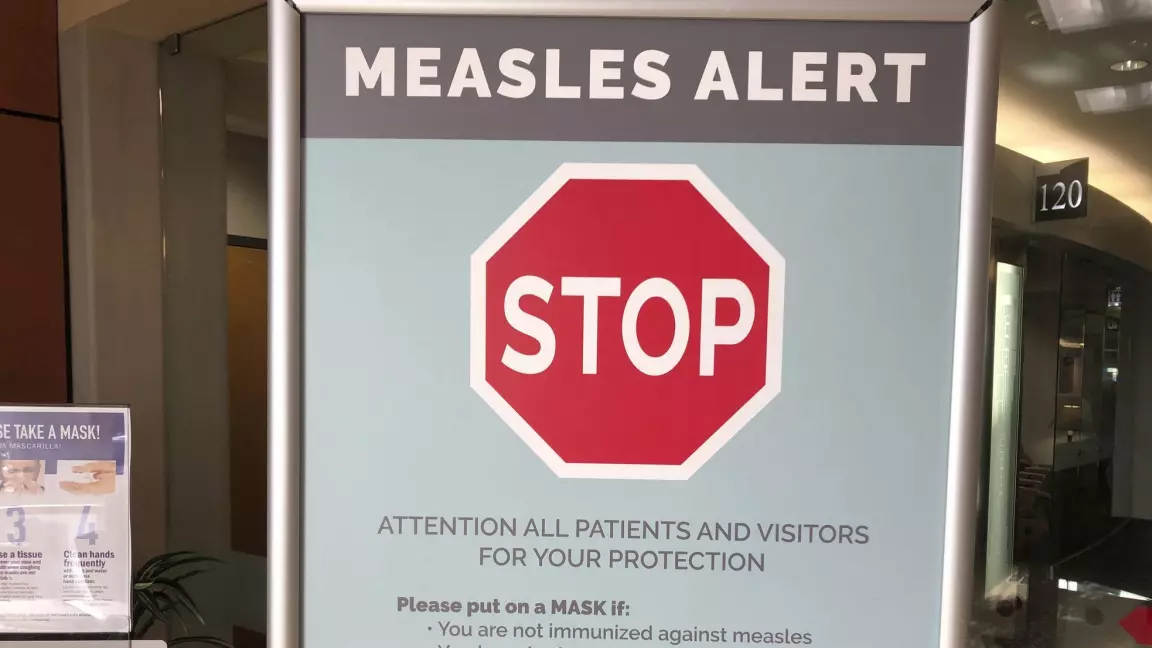Health
New Brunswick sees spike of COVID-19 cases tied to cruise travel – Global News

Provincial health officials in New Brunswick have detected six new cases of COVID-19, four of which are tied to cruise travel.
On Saturday, the province’s chief medical officer of health Dr. Jennifer Russell said the new cases include two women and two men – all between the ages of 40 and 70 – who recently travelled on a cruise ship.
The other two cases are a woman between 20 and 30, who had contact with a previous travel-related case, and a woman between 50 and 60, who had direct contact with a previous case.
READ MORE: New Brunswick unveils coronavirus self-assessment tool
“There are people travelling from all over the world from different parts of New Brunswick, and we are anticipating that if they stay at home and self-isolate…we can contain the travel-related cases,” said Russell in a press conference.
“That’s our goal right now. We need to behave as though we all have COVID-19.”
There are now nine confirmed cases of COVID-19 and eight presumptive cases in New Brunswick for a total of 17 COVID-19 cases.
All of the new cases announced Saturday are in the southern and central health zones.
Russell said the patients are in self-isolation with mild to moderate symptoms, and are being closely monitored by public health officials.
She declined to reveal whether those individuals who had travelled on cruises were on the same ship or airplane.
On Saturday, the province also announced new relief for residents accessing prescription medication under public drug coverage.
For the duration of the COVID-19 pandemic, Russell said those patients will only be responsible for the initial co-payment on a prescription fill or refill.
“For example, a patient with a 90-day prescription with only have a co-payment for the first 30-day fill, and there will be no co-payment required for the second and third 30-day fills on the same 90-day prescription,” she explained.
“This applies to all New Brunswickers that are on the public drug plan, including many seniors and low-income individuals.”
READ MORE: St. Stephen, N.B. prepares for change on eve of coronavirus border restrictions
This week, New Brunswick took rapid new measures to prevent the spread of infection in the Maritime province.
On Thursday, the government declared a state of emergency, enabling it to order the closure of certain communal spaces, including gyms, performance theatres, cinemas, bars and more.
The province has also limited public access to Service New Brunswick centres, reduced hours at liquor and cannabis stores, and restricted restaurants to takeout only.
On Friday, Higgs also announced that childcare fees will be covered for anyone out of work as a result of COVID-19, and interest fees on student loans will be frozen for the next six months.
Schools, however, have been suspended indefinitely as the Department of Education and Early Childhood Development follows best practices for social distancing.

“This coming week, we encourage parents and students to focus on your own physical and mental well-being,” said a Friday letter to parents from Deputy Minister George Daley.
“Resources are being assembled to share early next week to help guide and support your efforts.”
In the meantime, the provincial government is asking any residents who are concerned about possible COVID-19 symptoms to use a new self-assessment tool available on its website.
Anyone who has travelled internationally in the last two weeks must continue to self-isolate for 14 days, while everyone else is asked to keep their distance from others, and limit public gatherings to small groups.
© 2020 Global News, a division of Corus Entertainment Inc.
Health
Quebec successfully pushes back against rise in measles cases – CBC.ca


Quebec appears to be winning its battle against the rising tide of measles after 45 cases were confirmed province-wide this year.
“We’ve had no locally transmitted measles cases since March 25, so that’s good news,” said Dr. Paul Le Guerrier, responsible for immunization for Montreal Public Health.
There are 17 patients with measles in Quebec currently, and the most recent case is somebody who was infected while abroad, he said.
But it was no small task to get to this point.
Le Guerrier said once local transmission was detected, news was spread fast among health centres to ensure proper protocols were followed — such as not letting potentially infected people sit in waiting rooms for hours on end.
Then about 90 staffers were put to work, tracking down those who were in contact with positive cases and are not properly vaccinated. They were given post-exposure prophylaxis, which prevents disease, said Le Guerrier.
From there, a vaccination campaign was launched, especially in daycares, schools and neighbourhoods with low inoculation rates. There was an effort to convince parents to get their children vaccinated.
Vaccination in schools boosted
Some schools, mostly in Montreal, had vaccination rates as low as 30 or 40 per cent.
“Vaccination was well accepted and parents responded well,” said Le Guerrier. “Some schools went from very low to as high as 85 to 90 per cent vaccination coverage.”
But it’s not only children who aren’t properly vaccinated. Le Guerrier said people need two doses after age one to be fully inoculated, and he encouraged people to check their status.
There are all kinds of reasons why people aren’t vaccinated, but it’s only about five per cent who are against immunization, he said. So far, some 10,000 people have been vaccinated against measles province-wide during this campaign, Le Guerrier said.
The next step is to continue pushing for further vaccination, but he said, small outbreaks are likely in the future as measles is spreading abroad and travellers are likely to bring it back with them.
Need to improve vaccination rate, expert says
Dr. Donald Vinh, an infectious diseases specialist from the McGill University Health Centre, said it’s not time to rest on our laurels, but this is a good indication that public health is able to take action quickly and that people are willing to listen to health recommendations.
“We are not seeing new cases or at least the new cases are not exceeding the number of cases that we can handle,” said Vinh.
“So these are all reassuring signs, but I don’t think it’s a sign that we need to become complacent.”
Vinh said there are also signs that the public is lagging in vaccine coverage and it’s important to respond to this with improved education and access. Otherwise, microbes capitalize on our weaknesses, he said.
Getting vaccination coverage up to an adequate level is necessary, Vinh said, or more small outbreaks like this will continue to happen.
“And it’s very possible that we may not be able to get one under control if we don’t react quickly enough,” he said.
Health
Pregnant women in the Black Country urged to get whooping cough vaccine – BBC.com


Pregnant women urged to get whooping cough vaccine
Pregnant women in the Black Country are being urged to get vaccinated against whooping cough after a rise in cases.
The bacterial infection of the lungs spreads very easily and can cause serious problems, especially in babies and young children.
The Black Country Integrated Care Board (ICB) is advising pregnant women between 16 and 32 weeks to contact their GP to get the vaccine so their baby has protection from birth.
The UK Health Security Agency warned earlier this year of a steady decline in uptake of the vaccine in pregnant women and children.
Symptoms of the infection, also known as “100-day cough”, are similar to a cold, with a runny nose and sore throat.
Sally Roberts, chief nursing officer for the ICB, which covers Wolverhampton, Dudley, Walsall and Sandwell, said anyone could catch it, but it was more serious for young children and babies.
“Getting vaccinated while you’re pregnant is highly effective in protecting your baby from developing whooping cough in the first few weeks of their life – ideally from 16 weeks up to 32 weeks of pregnancy,” she said.
“If for any reason you miss having the vaccine, you can still have it up until you go into labour.”
Follow BBC West Midlands on Facebook, X and Instagram. Send your story ideas to: newsonline.westmidlands@bbc.co.uk
Health
Measles cases stabilize in Montreal – CityNews Montreal


The number of measles cases has stabilized, according to the Montreal Public Health.
Since March 25, there have been no contaminations reported within the community.
“Our teams have identified all contact cases of measles,” said media relations advisor Geneviève Paradis. “It’s a laborious task: each measles case produces hundreds of contacts.”
All community transmission cases since February 2024 have been caused by returning travelers who were either unvaccinated or partially vaccinated.
Currently, there are 18 measles cases in Montreal – with 46 total in Quebec. This according to the April 18 figures from the provincial government.
“With the summer vacations approaching, if you’re travelling, it is essential to check if you are protected against measles,” explained Paradis.
According to Montreal Public Health, a person needs to have received two doses after the age of 12 months to be immunized against the virus.
They’ve launched a vaccination campaign throughout the region, and currently, 11,341 people have been vaccinated against measles in Montreal between March 19 and April 15.
Vaccination is also being provided in schools and at local service points.
“The vaccination operation is under the responsibility of the five CIUSSS of the territory,” concluded Paradis.
-



 Science7 hours ago
Science7 hours agoJeremy Hansen – The Canadian Encyclopedia
-



 Investment7 hours ago
Investment7 hours agoUK Mulls New Curbs on Outbound Investment Over Security Risks – BNN Bloomberg
-



 Tech6 hours ago
Tech6 hours agoSave $700 Off This 4K Projector at Amazon While You Still Can – CNET
-



 Health20 hours ago
Health20 hours agoSupervised consumption sites urgently needed, says study – Sudbury.com
-



 Tech5 hours ago
Tech5 hours ago'Kingdom Come: Deliverance II' Revealed In Epic New Trailer And It Looks Incredible – Forbes
-



 Sports5 hours ago
Sports5 hours agoAuston Matthews denied 70th goal as depleted Leafs lose last regular-season game – Toronto Sun
-
News20 hours ago
Canada's 2024 budget announces 'halal mortgages'. Here's what to know – National Post
-



 Science20 hours ago
Science20 hours agoGiant, 82-foot lizard fish discovered on UK beach could be largest marine reptile ever found – Livescience.com





